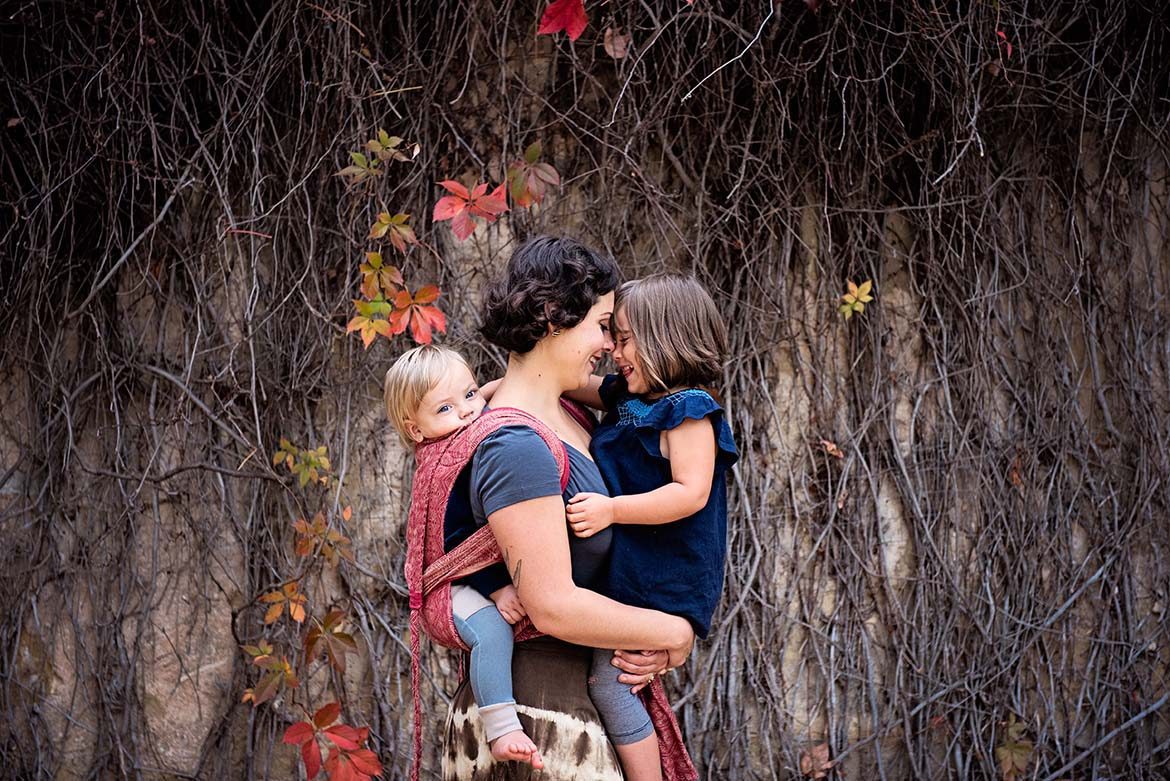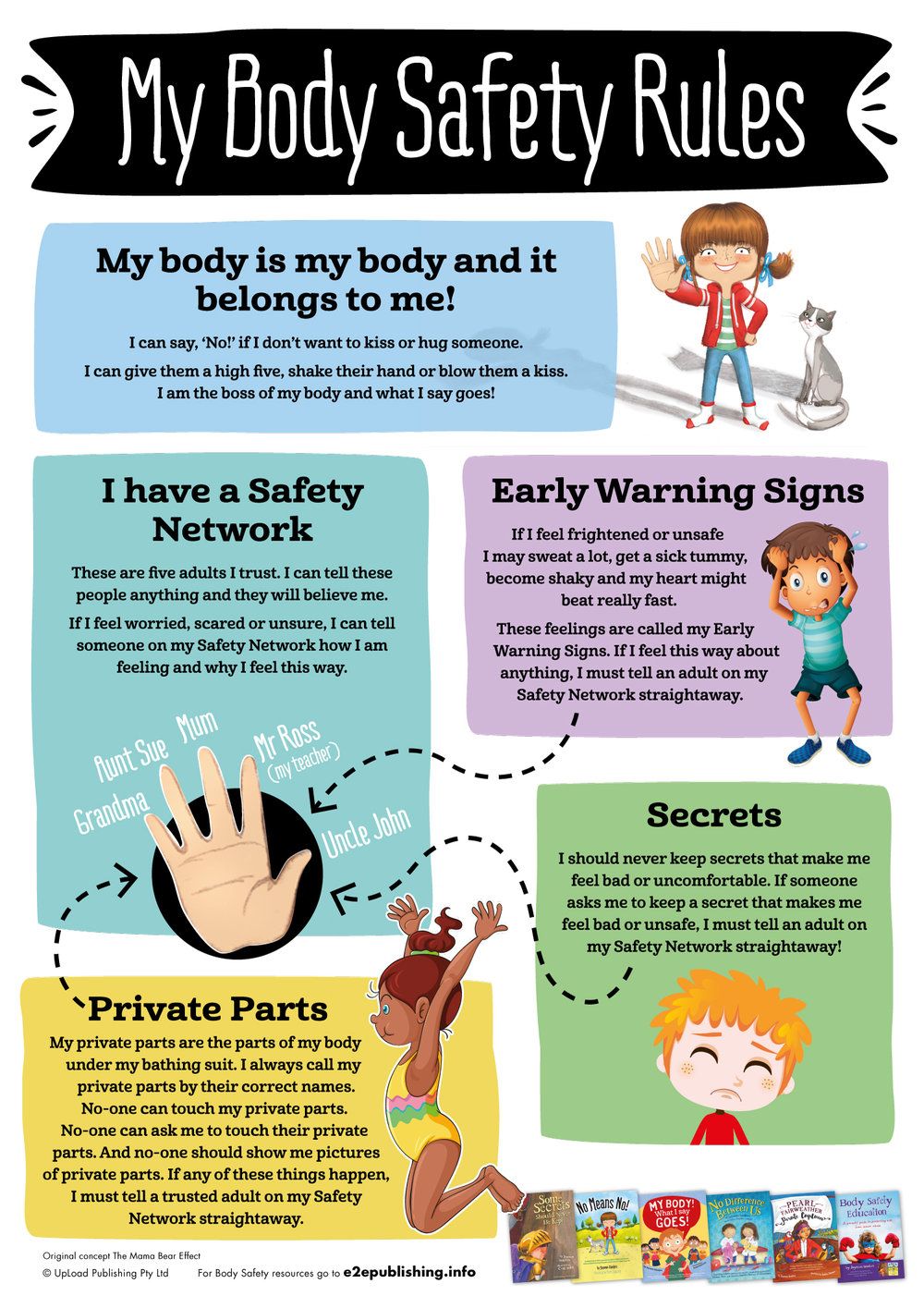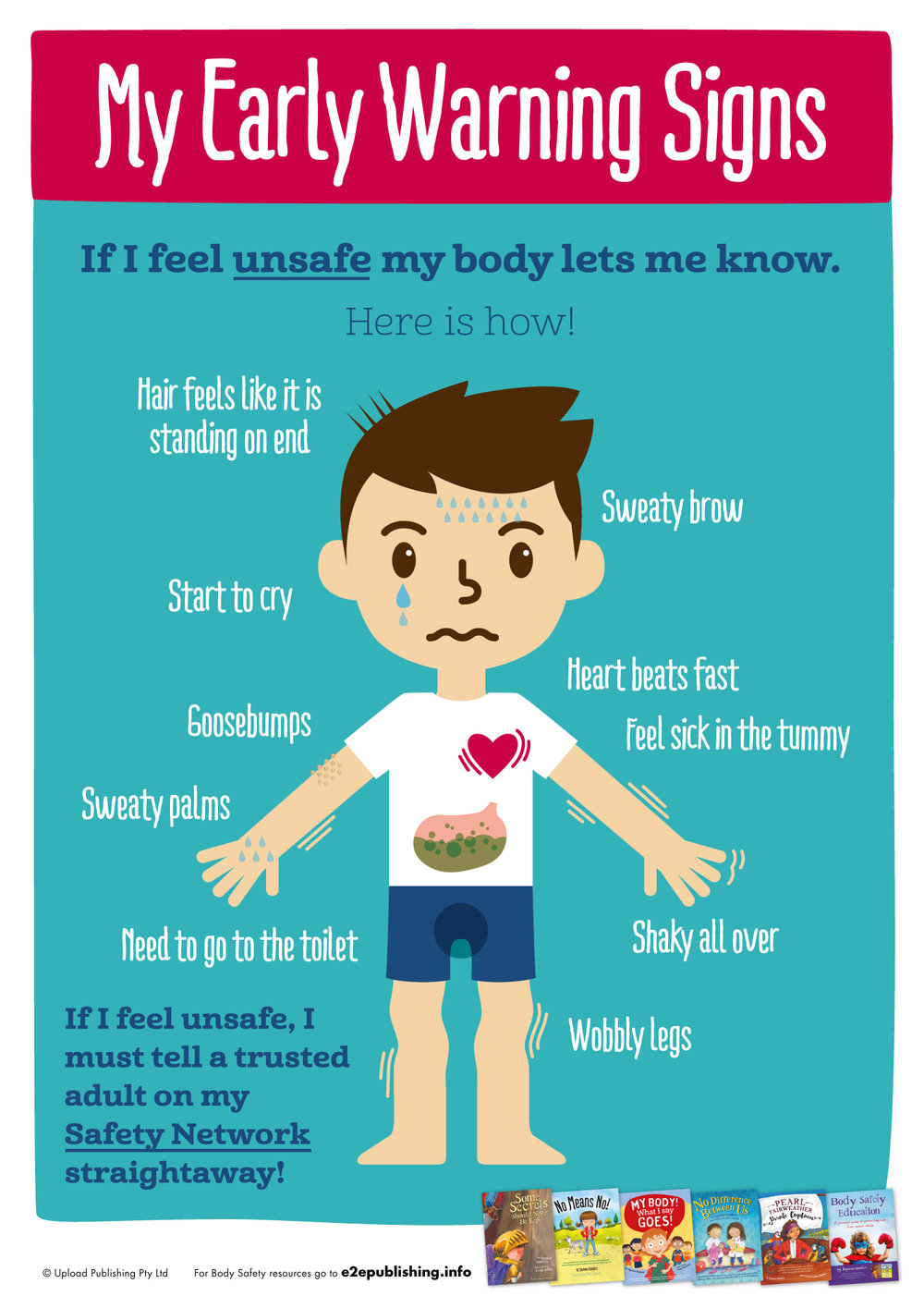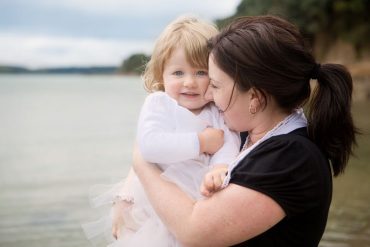By Hannah Schenker
By teaching your child about body autonomy you will be helping to protect them from abuse. These Body Safety Rules are a great place to start:
- My body is my body.
Teach your children that it’s OK to say no to unwanted physical touch – hugs and kisses from mum’s friends, extended family, strangers. It is our job as parents to empower our children from a young age with a strong sense of their own personal boundaries, even if it upsets some of your friends and family who feel justified in their physical affection. In that case you can gently explain your reasons, and perhaps encourage your child to come up with a “safe” greeting, like a High Five, handshake or a wave – something that feels OK to them. - Have a safety network.
Help your child to come up with three to five adults that they trust and feel comfortable with. These people are their safety network, and will be people who love and respect your child. This means that your child can go to these people with any concerns or red flags and they will be taken seriously. It is up to your child, not you, who these people are. Trust their instincts. - Know the early warning signs.
Have an open conversation with your child about what the early warning signs are, so they know what is OK and what isn’t. If they feel any of these uncomfortable sensations around someone, such as a feeling scared, shaky or sick in their stomach, they must tell you or someone in their Safety Network straight away.

- Refer to private parts by their correct names.Â
Explain that nobody is allowed to touch their body in these areas, nor show them theirs or pictures of them. If this ever happens they are to speak up and say “No!” or “Stop!” and tell someone in their Safety Network straight away, because it’s not OK. Referring to their body parts by their correct names gives them a sense that these are important parts of their body and nothing to be ashamed of. - Secrets…
Talk with your child about secrets, and that if anyone asks them to keep a secret that makes them feel uncomfortable, it is OK to tell them you do not keep secrets, and it is safe to tell someone in their Safety Network.
For more resources, head to Educate 2 Empower and school yourself and your child with this valuable knowledge.













